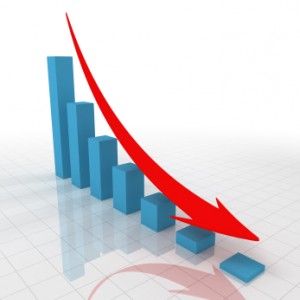 WASHINGTON, D.C. – A Canadian think-tank reports that the United States has dropped 10 places over the last decade in its ranking of nations with economic freedom. The U.S. now ranks 18th behind nations such as Bahrain and Chile.
WASHINGTON, D.C. – A Canadian think-tank reports that the United States has dropped 10 places over the last decade in its ranking of nations with economic freedom. The U.S. now ranks 18th behind nations such as Bahrain and Chile.
The Fraser Institute report states, “The United States, long considered the standard bearer for economic freedom among large industrial nations, has experienced a substantial decline in economic freedom during the past decade.”
“The chain-linked ranking of the United States has fallen precipitously from second in 2000 to eighth in 2005 and 19th in 2010 (unadjusted ranking of 18th),” the report said. The rankings are based on size of government, legal system and property rights, sound money, freedom to trade internationally, and regulation.
From 1980 to 2000, the U.S. was generally rated the third freest economy in the world, ranking behind only Hong Kong and Singapore, according to Fraser.
The president of Americans for Prosperity Foundation, Tim Phillips, said the fact that the United States has fallen from 3rd to 18th in just 10 short years means “we have lost a full decade of growth.”
“It is a travesty that our country is spiraling away from the principles that have made us an economic beacon for the world,” Phillips said in a statement issued after the report was issued.
“This report shows what many fiscal conservatives have known all along, that our long-term growth is being threatened because big-government economic policies have grown the size of government, increased regulation, and are now reducing our economic freedom and future prosperity,” he added.
The annual Economic Freedom of the World report is the premier measurement of economic freedom, using 42 distinct variables to create an index ranking countries around the world based on policies that encourage economic freedom. The cornerstones of economic freedom are personal choice, voluntary exchange, freedom to compete, and security of private property. Economic freedom is measured in five different areas: (1) size of government, (2) legal structure and security of property rights, (3) access to sound money, (4) freedom to trade internationally, and (5) regulation of credit, labor, and business.
This year’s index shows that Hong Kong retains the highest rating for economic freedom, 8.90 out of 10. The other top 10 nations are: Singapore (8.69); New Zealand (8.36); Switzerland (8.24); Australia (7.97); Canada (7.97); Bahrain (7.94); Mauritius (7.90); Finland (7.88) and Chile (7.84).
“The United States, like many nations, embraced heavy-handed regulation and extensive over-spending in response to the global recession and debt crises. Consequently, its level of economic freedom has dropped,” said Fred McMahon, Fraser Institute vice-president of international policy research.
The rankings of other large economies in this year’s index are:
12. United Kingdom (7.75)
18. United States (7.69)
20. Japan (7.64)
31. Germany (7.52)
47. France (7.32)
83. Italy (6.77)
91. Mexico (6.66)
95. Russia (6.56)
105. Brazil (6.37)
107. China 6.35)
111. India (6.26)
The scores of the bottom 10 nations in this year’s index are: Venezuela, 4.07; Myanmar, 4.29; Zimbabwe, 4.35; Republic of the Congo, 4.86; Angola, 5.12; Democratic Republic of the Congo, 5.18; Guinea-Bissau, 5.23; Algeria, 5.34; Chad, 5.41; and, tied for 10th worst, Mozambique and Burundi, 5.45.
 Off The Grid News Better Ideas For Off The Grid Living
Off The Grid News Better Ideas For Off The Grid Living



